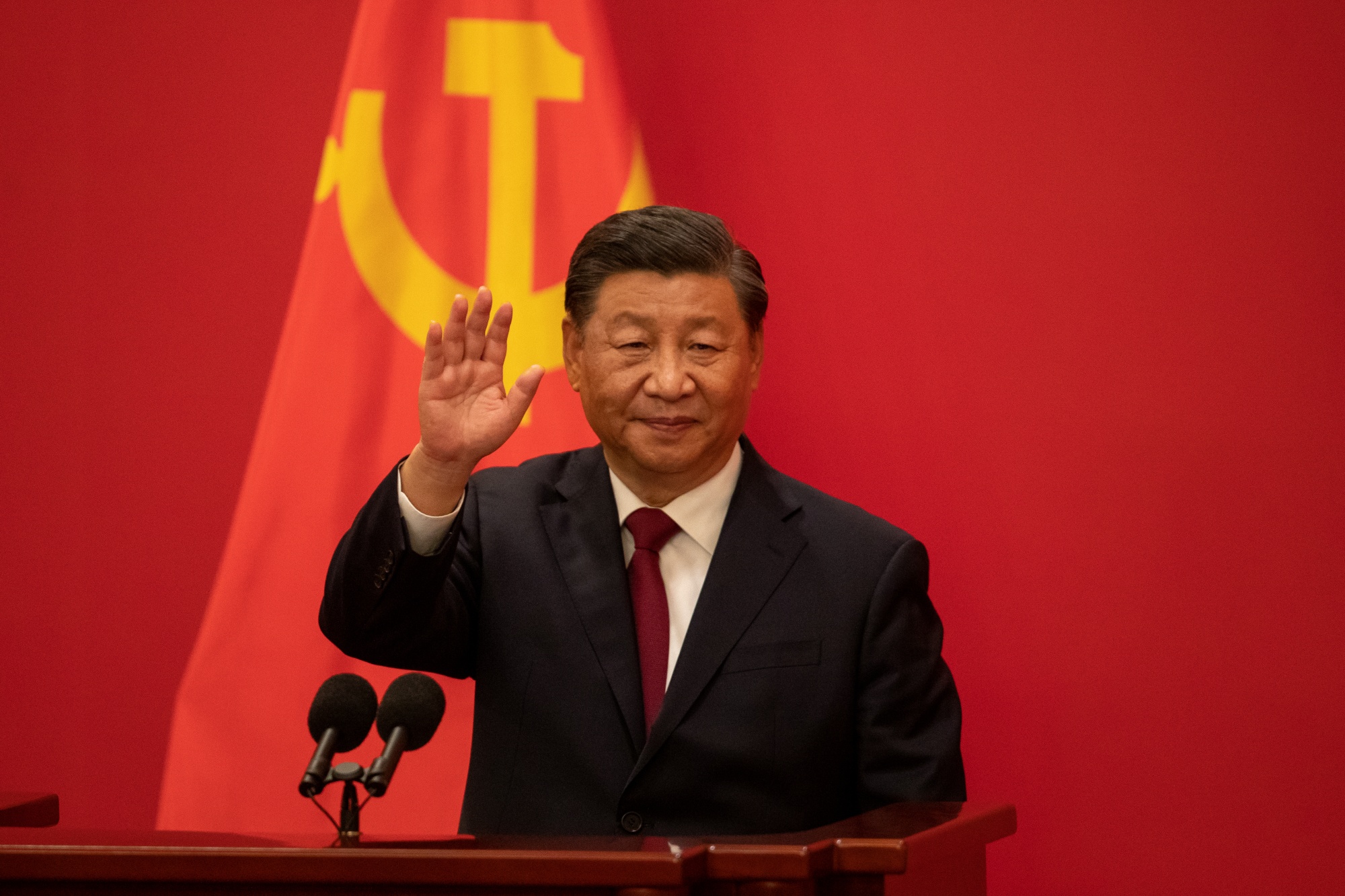Xi Jinping's Strategy: Increasing China's Tolerance For A Lengthy Dispute With The US

Table of Contents
Economic Resilience and Self-Reliance
A cornerstone of Xi Jinping's strategy is building economic independence and technological self-sufficiency. This is manifested most clearly in his "dual circulation" strategy, which aims to reduce China's dependence on foreign markets and technologies. The goal is to create a robust domestic economy capable of withstanding external pressure, even prolonged confrontation with the US.
This involves several key components:
- Reducing reliance on foreign technology: This includes massive investment in key sectors like semiconductors and artificial intelligence, areas where China currently lags behind the US. The aim is to achieve technological independence, reducing vulnerability to US sanctions and export controls.
- Strengthening domestic supply chains: China is actively diversifying its supply chains, reducing its dependence on foreign suppliers for critical components and raw materials. This involves incentivizing domestic companies to invest in advanced technologies and imposing stricter regulations on foreign investment in sensitive sectors.
- Boosting domestic consumption: By promoting domestic consumption, China aims to lessen its dependence on export-led growth, making its economy less susceptible to global fluctuations and trade wars.
This strategy is supported by:
- Increased government spending on R&D.
- Incentives for domestic companies to invest in advanced technologies.
- Stricter regulations on foreign investment in sensitive sectors.
The overall aim is to create an economically resilient China, capable of withstanding prolonged economic pressure from the US.
Cultivating Strategic Patience and Political Stability
Xi Jinping understands that a long-term confrontation with the US requires unwavering political stability within China. Maintaining social order and the legitimacy of the Communist Party is paramount. This involves:
- Emphasis on social and political stability: Suppressing dissent and maintaining control are crucial to ensuring the long-term success of Xi's strategy. This allows the government to focus on long-term strategic goals without being distracted by internal turmoil.
- Cultivating Nationalist Sentiment: Xi's government utilizes nationalist narratives and propaganda to build public support for a prolonged confrontation with the US, framing it as a struggle for national rejuvenation and global influence.
- Strengthening Authoritarian Control: The Communist Party is tightening its grip on information and dissent, suppressing any challenges to its authority that could undermine the national unity needed for a protracted conflict.
This approach is reinforced through:
- Crackdowns on dissent and civil society.
- Increased censorship and propaganda campaigns.
- Strengthening internal security forces.
By prioritizing political stability and leveraging nationalistic sentiment, Xi aims to create a unified populace capable of enduring a long-term strategic competition.
Building Strategic Partnerships and Diversifying Alliances
To counter US influence and build alternative global governance structures, Xi Jinping is actively pursuing a strategy of building strategic partnerships and diversifying alliances. This includes:
- The Belt and Road Initiative (BRI): This ambitious infrastructure project aims to create alternative economic partnerships with developing countries, reducing China's reliance on Western markets and strengthening its geopolitical influence.
- Multilateral Engagement: China is actively participating in and shaping multilateral organizations like BRICS and the Shanghai Cooperation Organisation, challenging US dominance and creating alternative forums for global cooperation.
- Strengthening Ties with Non-Western Countries: China is actively cultivating relationships with countries wary of US influence, building a network of allies and partners that can help counterbalance US power.
This strategy is implemented through:
- Increased investments in infrastructure projects in Africa and Eurasia.
- Expanding trade and diplomatic relations with non-Western countries.
- Promoting alternative financial institutions to the US-dominated system.
This diversification of alliances reduces China's vulnerability to US pressure and enhances its global standing.
Information Warfare and Shaping the Narrative
An integral part of Xi Jinping's strategy involves shaping global narratives and countering negative perceptions of China's actions. This is achieved through:
- Disinformation and Propaganda: China actively uses propaganda and disinformation campaigns to counter negative narratives about its policies and actions, both domestically and internationally.
- Media Influence: Investment in international media outlets allows China to shape global perceptions and project its preferred image on the world stage.
- Cyber Warfare: The use of cyber warfare capabilities disrupts US systems, gathers intelligence, and sows discord.
These actions aim to create a more favorable global environment for China's long-term strategic goals.
Conclusion
Xi Jinping's strategy for managing a prolonged dispute with the US is multifaceted, encompassing economic resilience, political stability, strategic partnerships, and information warfare. By pursuing these interconnected strategies, China aims to withstand US pressure and emerge stronger. Understanding Xi Jinping's long-term strategy for enduring US confrontation is crucial for navigating the evolving geopolitical landscape. Further research into the effectiveness of these strategies and their potential implications for the future of Sino-US relations is essential. The ongoing analysis of Xi Jinping's strategy for a lengthy dispute with the US will continue to be critical for policymakers and strategists worldwide. Understanding this long-term strategy is crucial for navigating the complex dynamics of Sino-US relations and the future of global geopolitics.

Featured Posts
-
 Las Vegas Raiders Scout At Boise State Pro Day For Ashton Jeanty
Apr 25, 2025
Las Vegas Raiders Scout At Boise State Pro Day For Ashton Jeanty
Apr 25, 2025 -
 Voyna V Ukraine Kak Menyalis Vzglyady Trampa
Apr 25, 2025
Voyna V Ukraine Kak Menyalis Vzglyady Trampa
Apr 25, 2025 -
 Retegui Y La Bota De Oro Un Analisis De Sus Impresionantes Goles
Apr 25, 2025
Retegui Y La Bota De Oro Un Analisis De Sus Impresionantes Goles
Apr 25, 2025 -
 Weight Loss Success Story How A Friends Words Changed One Mans Life
Apr 25, 2025
Weight Loss Success Story How A Friends Words Changed One Mans Life
Apr 25, 2025 -
 Jay Barbershop Uses Haircut Marathon To Fight Suicide
Apr 25, 2025
Jay Barbershop Uses Haircut Marathon To Fight Suicide
Apr 25, 2025
